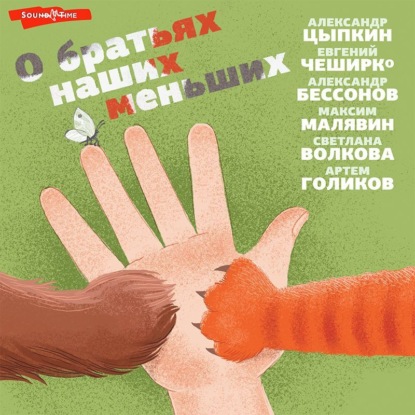
Полная версия:
Александр Бессонов Мадам
- + Увеличить шрифт
- - Уменьшить шрифт

Александр Бессонов
Мадам
Рассказы
© Александр Бессонов, текст, ил., 2022
© ООО «Издательство АСТ», 2022
Предисловие
Перед вами мой третий сборник рассказов. Мне очень приятно, что в этом сумасшедшем информационном потоке у вас нашлось время на книгу. Время на диалог с самим собой прежде всего. Это мой третий сборник, и только к третьему сборнику я понял, что рассказы – это один из самых сложных жанров в литературе. Ну посудите сами: вот вы прочитали один рассказ – хорошо, второй – отлично, третий – так себе, четвертый – да автор псих!
И вы кидаете книгу в сторону и спокойно идете смотреть сериал. (Именно так я не дочитал «Темные аллеи» Бунина.) В рассказах очень сложно постоянно удерживать внимание читателя. То ли дело в романе. Раз зацепил – и до конца. (Это мнение человека, который не написал ни одного романа, но мечтает.)
В этом сборнике я решился на эксперимент. Здесь чередуются рассказы от третьего лица с историями от первого. Ну типа конферанса, что ли. Чтобы мозг отдыхал и переключался. Так что если у вас во время чтения появилось желание сильно ударить автора, немного потерпите, скоро будет конферанс и совершенно другая история.
Надеюсь, в конце мы подружимся. Приятного чтения. Итак, удобно располагайтесь.
В маленьком провинциальном городке, который был не так мал, как провинциален, в обычном районе из многоквартирных домов…
И да, забыл, все-таки – мультифора!
Мадам
Немного прихрамывая, из продуктового магазина вышла тучная женщина. В руках она несла два тяжелых пакета. На выходе ее поджидал бомж неопределенного возраста в ярко-желтом шарфе. Он обратился к женщине:
– Барышня, не могли бы вы уделить мне пару минут вашего драгоценного времени?
Женщина улыбнулась. Этого было достаточно, чтобы ее визави продолжил:
– Мадам, я понимаю, что отвлекаю вас в весьма неудобный момент, поэтому готов подержать ваши пакеты во время нашего диалога.
Женщина, задумчиво посмотрев на мужчину, уточнила:
– А не убежишь?
– Мадам, я не в том возрасте, чтобы воровать пакеты с замороженным минтаем и курицей у таких обаятельных женщин!
Она передала ему пакеты.
– Ну, чё хотел?
– Хотел денег попросить и сделать комплимент обворожительной даме. Не знаю, с чего начать…
Женщина немного покраснела. И ответила:
– Начни со второго. От его правдоподобности будет зависеть первое. Я внимательно слушаю. Ведь что нужно мужчине? Внимательные женские глаза и большие уши.
– Хм… В ваших глазах я вижу кусочек неба!
Женщина глубоко вдохнула.
– Сколько?
– Двести рублей.
– Пропьешь же!
Мужчина глубоко выдохнул:
– Пропью.
– Не понимаю таких, как ты! Ты же мой погодка, ну плюс-минус. Мы родились, в школу ходили, росли. А сейчас…
– Мадам, мне пора. Извините, что побеспокоил.
Он протянул ей пакеты. Женщина предложила:
– Давай так. Я ногу подвернула. Ты мне поможешь донести пакеты до подъезда, а я тебе помогу.
– Мерси, мадам.
К подъезду подходила колоритная пара. Мужчина нес пакеты и что-то оживленно рассказывал. Рядом, заливаясь от смеха, ковыляла женщина. Было такое ощущение, что счастливая семейная пара возвращается домой с покупками. Женщина сказала:
– Вот мы и пришли.
– Шикарный подъезд шикарной женщины! Мадам, вы красивы!
– Ну ты и льстец! Как говорят, не бывает некрасивых женщин – бывают недофинансированные.
– Странно сказать, но за этот час… Я был счастлив. С вами легко, знаете ли…
– Это все благодаря вам. Давно меня не сопровождал мужчина.
– Мне лестно это слышать.
– Если бы не было мужчин, то вся земля была бы населена толстыми, веселыми, ненакрашенными тетками. Вот, возьмите. – Она протянула ему пятисотрублевую купюру.
– Мадам, мне нужно двести. У меня нет сдачи.
– Бери, говорю.
– Нет!
– Значит… У нас будет повод завтра опять увидеться. На том же месте. Ну, скажем… В час дня?
– Я к вашим услугам, мадам. Как я вас узнаю? – спросил мужчина и немного улыбнулся.
– Вы увидите, как к вам будет направляться женщина. Вы подумаете, хоть бы не она. Так вот, это буду я.
Смеялись оба. Они разошлись в разные стороны, и каждый направился в свой мир.

Плащ
На улице +24, солнце, лето. Я встречаю в уютном кафе знакомых, и первый же их вопрос:
– О, а ты чё в плаще?
Вариантов ответов за много лет у меня набралось море, от:
«У меня есть друг синоптик, он профессиональный врун»;
«У меня холодное сердце и по венам течет фреон»;
до простого и совершенно безотказного:
«Кукуха поехала!»
Открою вам тайну плаща. Я эксгибиционист. Люблю лес и бабушек. Вот видите, моя главная проблема, что я не могу вовремя остановиться и хреново шучу.
На самом деле, мой плащ – сумка для документов. Да, я знаю, что есть специальные портмоне, борсетки, портфели и т. п. Но помимо «малоизвестного автора малой прозы» я широко известный чемпион мира по потере документов. Три раза терял сумки со всеми документами. Прям со всеми, даже СНИЛС там был. Приходилось очень мучительно восстанавливать. Один раз, чтобы открыть машину, поставил борсетку на крышу. Радует одно: документы, перед тем как потеряться, прокатились с ветерком.
Поэтому плащ! Его сложнее потерять. Да, немного жарко, ну а кому сейчас легко?!
Спящий красавец
– Светлана, здравствуйте! Извините, пожалуйста, я ваша соседка снизу.
– Я музыку сейчас потише сделаю, – ответила девушка в легком халатике. В руках она держала бокал с вином.
– Да ну что вы, не стоит. Позвонили с работы мужа, попросили срочно приехать.
– Что-то со здоровьем?
– Не сказали. Сказали срочно. К маме ехать долго. Не могли бы вы за сыном моим приглядеть? Ему семь с половиной, по идее, он может и один, но я буду сильно переживать. А тут и так на нервах…
– Конечно, сейчас переоденусь и спущусь.
– Он так-то спокойный – или в планшете сидит, или вопросы задает.
* * *Девушка в белой майке и джинсах сидела за столом, пила чай и с кем-то говорила по телефону:
– Эта Смирнова из бухгалтерии тупая овца. Видно же, как она с Петром Сергеевичем заигрывает.
В кухню зашел мальчик с планшетом в руках. Из планшета доносились звуки спора – Джейми и Адам из MythBusters никак не могли договориться. На майке у мальчика была надпись «Будущее России – за роботами!».
– Ой, извини, перезвоню. Я тут в благотворительности участвую. – Девушка нажала «отбой» и повернулась к мальчику: – Привет, я тетя Света. Будешь чай?
– Нет. Спасибо. Я – Кирилл. А вы – красивая… Хотя мама говорит, что все красивые – несчастные. А папа говорит маме, что по ее логике либо она – уродина, либо брак – неудачный.
– Веселые у тебя родители. За красивую, конечно, спасибо. А про несчастную…
– А где ваш муж?
– Ой, скажем так… в магазин ушел. Года три назад.
– А-а-а, понял! Он вас бросил!
– Слушай, а у вас в доме есть что-нибудь покрепче чая? Мне от таких диалогов не по себе…
– Вино вроде в холодильнике.
– Спасибо, но я лучше чай. В гостях же.
– Тетя Света, вам нужен новый муж.
– Да где их найти…
– А кого вы ищете? Я смотрел программу одну – надо четко представить желаемое.
– Скинь ссылку программы. Короче, такого, чтобы богатый, красивый, добрый. Чтобы меня любил, обеспечивал меня всем…
– А вы ему такая зачем?
– В смысле – зачем? Я его любить буду, по СПА ходить.
– Ну вот какая этому дяде польза от вас? Если он умный, то он хочет видеть рядом с собой помощника. А зачем ему таракан в квартире…
– Где, ты говоришь, у вас вино? – Девушка открыла холодильник, нашла бутылку вина, вылила чай в раковину и налила в кружку вина.
– Еще я смотрел программу про жен олигархов. Там говорилось, что они все – алкоголички. Живут такие в особняках и спиваются.
– Это, милый Кирюша, называется – одиночество. Выпьешь со мной? Шучу!
– А знаете, я на ком женюсь?
– На мне?
– По натуре.
– На ком?
– На Аньке. Мы с ней на робототехнику вместе ходим. Она умная. Умнее меня. Один раз на соревновании у нас два модуля, которые по блютусу соединяются, перестали видеть друг друга. Мы с ней в одной команде. Так она берет их – и на улицу. Я за ней. Забежали в лесок рядом. Там сигналов нет никаких. И сразу модули нашли друг друга. Пришли и выиграли соревнование. Она – моя команда! Я в ней уверен! Ее есть за что любить!
Девушка залпом выпила содержимое кружки. Налила еще.
– Ну, Анька, коза, подрезала у меня такого жениха. То есть ты хочешь сказать, что мне надо на работе искать мужа?
– Сильных сами находят! Зачем искать, вы же не помидоры ищете в магазине.
– Слышь, психолог, не понимаю!
– Станьте сами богатой, красивой и доброй! Так понятно?
– А на хрен мне тогда кто-то нужен будет? Я бы путешествовала, английский учила, на танцы пошла, на курсы кулинарные. Тако научилась бы готовить!
– А что вам сейчас мешает?
– Мужа нет, который бы за всё платил.
– Тогда вы точно получается – таракан. Паразит.
– Эй, хорош обзываться. Я хочу обычного женского счастья.
– Меньше фильмов смотреть надо! Всю жизнь будете искать несуществующего дурака, вместо того чтобы жить!
– Заткнись! Много ты понимаешь! Иди в свою комнату! Умник! Спать пора!
Мальчик ушел. У девушки текли слезы. Она допила вино. Зазвонил ее телефон. Она сбросила. Входная дверь открылась. Зашла пара. Оба были слегка подшофе, глаза светились от радости.
– Светочка, спасибо вам большое, что посидели, – пропела соседка.
– Не проблема. Я тут вино ваше…
– Ничего, ничего.
– Вижу, с мужем все хорошо?
– Ой, да это он коллег подговорил. Дебилы. У нас годовщина первого поцелуя сегодня. Я приехала в его офис. Он на полу лежит, и записка на груди: «Я – спящий красавец. Поцелуй!» Потом вина купили и в кино пошли, как в институте.
– Вы сговорились, что ли?! Мне пора!
– Как Кирилл себя вел? – спросила его мама, когда Света была уже в дверях.
– Плохо. Очень плохо. Можно я почаще буду с ним сидеть? Воспитывать.

Котик
Вчера стояла невыносимая жара. Я возвращался из бассейна и заехал на заправку. Возле ограждения заметил его. Он был настолько прекрасен, что я вышел из машины и пошел с ним знакомиться. Это был большой, красивый серый кот. Он вальяжно грелся на солнышке и, когда я подошел к нему, с пренебрежением посмотрел на меня:
– Человек, два дайкири, пожалуйста!
– Извините, но я не официант, – неуверенно ответил я.
– Жаль, а зачем подошел? Отойди, солнце загораживаешь.
– Вы просто так красиво лежали… Вам не жарко?
– Не понимаю вас, людей. Вас все время погода не устраивает. Завтра дождь будет – вы будете гундеть: «Ну невозможно дождливое лето». Сейчас солнце – «Что за невыносимая жара». А жить когда? А наслаждаться моментом?
– Для кота с заправки у вас очень мудрые мысли.
– Ну вот, еще и статус мой приплел. По-твоему, я должен ловить мышей и делать так, чтобы мыши не нюхали бензин? По-твоему, мудрые мысли должны высказывать только люди с синей галочкой у аватарки? – Кот демонстративно отвернулся от меня.
– Нет-нет, что вы! Я не хотел вас обидеть. Извините меня, пожалуйста.
Кот опять повернулся ко мне:
– Ты просишь прощения у кота с заправки… Не кажется ли тебе это странным? Может быть, это ты надышался парами бензина? Вообще ты уверен, что это заправка? Может быть, это твой сон? Или это воспоминание из твоей прошлой жизни?
– Не путайте меня. Вы всего лишь серый полосатый кот, который греется на солнце. Сейчас я сфотографирую вас и поеду домой. Какая прошлая жизнь…
– Ну, тебе виднее.
Я сделал пару фотографий и спросил:
– А как вас зовут?
– Ты все равно не поверишь.
– Ну все же?
– Бегемот. Кот Бегемот.
Так получилось
Чаку было совершенно непонятно, почему дверь подъезда, через которую они столько раз возвращались с прогулки, – закрыта. Он сидел напротив обшарпанной коричневой двери. «Может, все-таки ошибся?» – подумал он. «Нет!» – уверенно ответил сам себе. Запахи говорили – этот. «Просто нужно еще немного подождать, и хозяин вспомнит, что зачем-то отвез меня на машине в лес и оставил меня там. Это игра! Но я нашел. Теперь жду!» Пошел снег. Лапы Чака мерзли все сильнее и сильнее. Тело предательски дрожало, не спасала даже шерсть.
«Главное – не думать про голод. Сейчас они как увидят меня, как обрадуются. Да как дадут большую вкусную косточку…» Трясущаяся некрупная собака подошла к сугробу и стала есть снег. Снег таял в пасти, пить хотелось меньше, но становилось еще холоднее. Хотя куда еще больше. «Сейчас меня запустят, и я лягу рядом с огромной белой батареей. Но сначала косточка. И суп. А потом буду на них всех рычать. Я понимаю, конечно, что игра. Тренировали меня. Но я искал наш двор несколько ночей. Вчера прошмыгнул в открытую дверь подъезда, согреться. Утром проснулся от удара ногой дворника в бок. Заскулил. Сил не было даже укусить его. Люди странные. Когда я на поводке с хозяином, то почти каждый человек на улице мне улыбнется, поздоровается с хозяином. А когда один, все с ненавистью смотрят, а этот даже пнул. Теперь бок болит. Зараза, блин!»
Собака несколько часов неподвижно смотрела на дверь подъезда. Из нее никто не выходил и не входил. Чак начал тихонечко скулить. Мыслями он уже был сыт и в тепле. «Нужно только чуть-чуть подождать. Чуть-чуть». Началась метель. Чак уже почти не чувствовал лап. Он лег, свернулся клубочком. Постепенно его сознание улетало куда-то далеко, далеко. Он свою задачу выполнил. Да, было сложно, но он нашел свой подъезд. Он – молодец. Надо поспа…
* * *Виктор Михайлович был в квартире один. Дел было неимоверно много: посмотреть телевизор, попить чаю, потом опять посмотреть телевизор, потом опять чаю, потом поспать и снова попить чаю… Больше на сегодня дел не было. Да что уж – на ближайшие лет десять распорядок дня был один и тот же. Раньше – вот это да! Водитель электропоезда. Он вез людей с окраин в самое сердце города. Он был частью огромной кровеносной системы мегаполиса. А главное, он был нужен.
«Ничего! – успокаивал он сам себя. – Скоро весна. Рассаду посажу. Там уже дачный сезон не за горами. Чуть-чуть – и перезимую!» Он пошел на кухню. Поставил кипятить чайник. Раньше во время кипячения можно было с кем-то поговорить, поворчать. А сейчас его словно обманули. Поспешили. Предательски оставив его одного.
Чайник вскипел. Виктор Михайлович привычным движением открыл тумбочку, где должна лежать заварка. Ее не было. Точнее, коробочка была – а заварки в ней не было.
«Тьфу ты, елки-моталки. Кончилась. Надо в магазин идти», – радостно подумал он. Быстро одевшись, вышел из квартиры. В подъезде перегорела лампочка, а может быть, опять украли. «Надо новую вкрутить. На обратном пути».
Открыв двери подъезда и сделав несколько шагов вперед, Виктор Михайлович обо что-то споткнулся и чуть не упал.
– Елки-моталки! – пробурчал он.
«Что-то» оказалось собакой, заметенной снегом. Снег не таял.
– Чак! – Виктор Михайлович узнал соседского пса. – Чак, ты чего?! Совсем тебе плохо? Погоди, я в домофон твоим хозяевам позвоню. – Он подбежал к домофону и набрал квартиру Чака. Никто не отвечал. Потом набрал номер соседей. Там ответили.
– Это сосед ваш. Не знаете, где соседи ваши, из шестьдесят четвертой? У них тут собака чуть не замерзла!
– Так они съехали. Развод вроде. Квартира продается.
– Елки-моталки! Спасибо.
Виктор Михайлович снял с себя пуховик. Положил рядом с собакой. Аккуратно перчаткой смахнул снег, переложил Чака на пуховик. Кажется, собака не дышала.
– Тьфу ты, елки-моталки! Чак, дыши!
Он затащил его в подъезд. К батарее. Гладил по замерзшей шерсти. По пути постучал в первую попавшую квартиру. Дверь открыла соседка Нина.
– Виктор Михайлович, что случилось?
– Нина, собака… Я вас очень прошу. Найдите ближайшую ветеринарку и вызовите нам такси.
* * *– Алло, Елена?
– Да, а это кто?
– Это ваш сосед из семьдесят второй квартиры. Виктор Михайлович. Мне ваш телефон Нина дала.
– А, здравствуйте, Виктор Михайлович.
– Я по поводу Чака.
– Это к Михаилу. Я никогда не хотела эту тупую собаку.
– Хм… Мы сейчас в ветери…
– Виктор Михайлович, этот дебил не может заработать даже на ипотеку… И тут на! Собаку купил. Вы знаете, что я несколько лет тянула семью на своем горбу?! Попросила его избавиться от псины… А он даже этого сделать не может! Всего доброго!
* * *– Алло, Михаил? Это Виктор Михайлович. Сосед. Бывший. Чак домой прибежал!
– Вы путаете. Наш Чак в лесу потерялся.
– Я уверен, что это Чак!
– Нет, этого не может быть.
– Ясно… Нельзя так с ними.
– Я не понимаю вас?!
– Все ты понимаешь. Я рад, что у меня не стало таких соседей.
* * *Уже несколько месяцев Чак жил в новом доме. Кончики ушей он потерял, ну и на две лапы до сих пор больно было наступать, но ничего, он привык. Собаки во дворе ему растолковали, да-да, у собак тоже есть свое комьюнити! И они общаются. Это вовсе не игра была. Вернее так: это была игра двух взрослых людей, в которой Чаку нужно было выполнить команду «умри». Только по-настоящему.
Еще Чак под деревьями вынюхал (а вы, поди, думаете, у собак нет своего интернета?), что у него новый хозяин. В инструкции говорилось, с хозяином надо гулять три раза в день. Он – немолодой, и, чтобы хозяин не залипал перед телевизором, Чак тренировал его бегом. «Забавные они, эти люди. Те вроде улыбались, но чуть жизни не лишили. Этот всегда недовольный. Бубнит постоянно. На самом деле добрый и хороший. Чак не дурак: тех кусать, этого любить!»
* * *В дверь постучали:
– Виктор Михайлович, это Михаил. Я ща живу с женщиной. У нее ребенок. Девочка собаку хочет. Давайте я Чака заберу у вас. Извините, что так получилось. Сколько я должен за ветеринарку?
– Михаил, не понимаю вас.
– Так получилось… Я мало зарабатывал и…
– Собаке без разницы, сколько ты зарабатываешь… Чак в лесу потерялся.
– Виктор Михайлович, вон же он лежит на подстилке.
– Это Норрис, а Чака ты потерял.
– Чак, ко мне!
Собака, лежа на подстилке, не двинулась с места. Только оскалила зубы.
– Михаил, вам пора. Я бы вам советовал к врачу зайти. Сердце проверить.
– А что не так с моим сердцем?
– Мне кажется, его нет.

Тайна с бородой
Эта история про моего отца. Он сильно уважает творчество Высоцкого и Довлатова, и, видимо, поэтому все свое детство я помню отца, носящего бороду. С ней он мне казался самым добрым человеком на свете. Но в один момент он решил ее сбрить и больше никогда не отпускал. Как-то я спросил, что случилось. Он не ответил. Только недавно рассказал мне ту историю.
Мой папа долгое время преподавал в строительном институте. Он был строгим, но справедливым преподавателем. Особенно строг был к тем, кто вообще не посещал его лекции и семинары. Он любит говорить так: «В медицине и строительстве ошибки недопустимы».
Экзамен. На поток – пара экзаменующих преподавателей. Пришли два двоечника. Не ходили никуда. Надеются с тройкой отползти. Вытянули билеты, готовятся. Начинают шептаться. Еще отличительная черта моего отца – у него очень чуткий слух.
– Кому сдавать будем?
– Вот та женщина валит! Только не к ней.
– Давай вот деду сдавать, – решает молодой человек и показывает в сторону моего отца.
– Давай. Деданы – добрые. Их главное заболтать.
– Понял. Я первый пойду. За жизнь спрошу.
Студент подсел к моему отцу и зашел с козырей:
– Уважаю ветеранов Великой Отечественной войны! Расскажите, пожалуйста, как воевали. Сколько вам лет было в Сталинградскую битву?
Мой папа совсем прифигел от такого поворота и честно ответил:
– Минус семь лет!
Тут прифигел уже студент. Экзамен продолжился. Двоечников отправили на пересдачу. В тот же вечер отец сбрил бороду и больше никогда в жизни ее не отпускал. А зря, мне нравилось. И ни фига он не дед! Точнее, дед, но только своим внучкам! Пап, ты классный!
Кашель
Екатерина Васильевна постоянно мерзла в квартире. Отопление еще не включили, а лето незаметно переключилось на осень. Начался кашель. Срочно нужно было лекарство. Небольшая грелка. Тепленький мужчина. Желательно русский. Хотя… Просто теплый.
Екатерина Васильевна зарегистрировалась на сайте знакомств. Выбрала свою лучшую фотографию пятнадцатилетней давности со встречи выпускников техникума торговли и написала: «Ищу лекарство от кашля. Без вредных привычек. О себе: одни плюсы, если подумать. Если не думать – тем более».
Выложив анкету, Екатерина Васильевна откинулась на спинку кресла и тихонько сказала: «Ловись, рыбка, и большая, и маленькая». И начала вязать теплый шарф из красной пряжи.
Начали приходить первые сообщения.
«Крутая фотка. Любишь тусэ? Валентин. 43 года».
Она немного подумала, отложила пряжу и написала:
«Тусэ не пробовала. Неплохо готовлю лагман».
Тусовщик Валентин пропал.
Потом написал некий Петр К.
«Знаю, как неплохо поиграть на фондовом рынке. Ты со мной?»
Она ответила:
«Давайте начнем с игры в лото. Можно у меня».
Петр К. пропал. Видимо, на рынок пришла новая фура. Выгружает.
«Куни хочешь? Алекс, 21 год».
Она ответила:
«Колли очень сложная порода собак, к тому же у меня уже есть спаниель».
Екатерина Васильевна налила себе чай, укрылась пледом. Стало теплее. «А может, ну их, эти знакомства? Тепло и так».
Пришло новое сообщение.
«Екатерина, приветствую! Простите меня за мою прямолинейность, но, похоже, Вы опубликовали ваше объявление по ошибке. Система почему-то вместо раздела „Куплю лекарства“ перенесла в объявления „Знакомства“. Игорь Сергеевич. Завкафедры полупроводников. Доцент. Гитарист».
Она подумала и ответила:
«Ой, действительно не туда. Спасибо, что заметили».
Ответ прислали быстро:
«Я много думал, почему Вы не могли просто пойти в аптеку. Видимо, на это есть весьма сильные причины. Например, ураган. Я рекомендую Вам капли от кашля на основе Бутамирата и для настроения витамин C. Хотя лучше для настроения послушайте Олега Митяева. Мне помогает J».
Екатерина Васильевна удивилась и открыла профиль доцента-гитариста. На нее смотрел забавный мужчина в очках на фоне палатки и гитары. Она ответила:
«Большое спасибо. Обязательно воспользуюсь Вашим советом. Вам очень идет серая куртка, гармонирует с цветом глаз».
Сразу пришел ответ:
«Можно, я приглашу вас на Обскую Губу? На байдарках?»
Екатерина Васильевна ответила:
«Я подумаю. Говорят, байдарки полезны. Особенно от кашля».

Утро…
Утро. Беру кофе в одном и том же кафе уже долгое время. За прилавком молодой бариста. Бодро спрашивает меня:
– Приветствую! Как обычно?
– Здравствуйте, да.
– Знаете, у нас коньяк закончился. В этот раз просто американо с молоком.
– Эх. Ну ладно, – пытаюсь одновременно улыбнуться его шутке и проснуться.
Я помню его почти с самого открытия. Его, угловатого, неуклюжего подростка, обучал более опытный коллега. Тогда, ожидая кофе двадцать с лишним минут, стал невольным свидетелем их диалога:
– Кухня не успевает, кофе-машина сломалась… Что делать? Что говорить клиентам? Ненавижу эту работу! – нервничал молодой.
– Шути!
– Ты забыл мое чувство юмора? Точнее, его отсутствие.
– Блин. Научись шутить. Это легко.
* * *Жду кофе без коньяка. Рядом за столиком сидит женщина. К ней подходит тот самый бывший стажер:
– Извините, по вашему заказу – каша со свежими яблоками. Представляете, захожу на кухню, а там наш повар последнее яблоко доедает. Витамины любит. Можно заменить на любой другой фрукт?
Женщина начинает улыбаться. Я – смеяться.
– Конечно, можно, – отвечает она.
Вот у меня вопрос к вам, дорогие мои. Чувство юмора – это базовая «прошивка» или его можно натренировать?
Гладиолусы
Как-то раз в семье мальчика по имени Степан разразился большой скандал. Причиной стали пять гладиолусов, которые он сорвал с клумбы прямо перед домом, возвращаясь из школы. Цветы Степан подарил маме со словами: «Мам, с обычным вторником тебя!»






